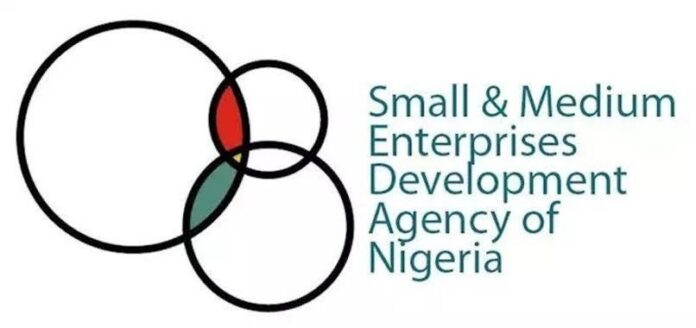The Small and Medium Enterprises Development Agency of Nigeria (SMEDAN) has proposed the establishment of D-8 centre on Small and Medium Enterprises (SMEs) in Nigeria.
Mr Olawale Fasanya, Director-General of SMEDAN made the proposal at the D-8 Forum on SMEs and health market, held in Abuja on Wednesday.
The event is with the theme: “A Coalition to Re-invent SMEs Competitiveness in the D-8 Region: Addressing the Challenges Faced by SMEs with Special Focus on Health Market’’.
The event was organised by the Ministry of Foreign Affairs in collaboration with SMEDAN and D-8HSP Programme Office.
The D-8 Organisation for Economic Corperation also known as Developing-8, is an organisation for development co-operation among Bangladesh, Egypt, Indonesia, Iran, Malaysia, Nigeria, Pakistan and Turkey.
Fasanya said that the centre would promote, encourage, advance and support the activities of MSMEs at the national level.
“The establishment of the D-8 Centre on SMEs will unleash substantial development impacts, synergies between and among the D-8 member states and relevant national agencies and authorities,’’ he said.
He said that the centre would organize symposium, fairs, conferences, seminars, meetings of SME operators to catalyse action in promoting and coordinating implementation of SMEs development initiatives within D-8 region.
Fasanya also said that the centre would engage in policy analysis, implementation and capacity development of SMEs.
The SMEDAN Boss expressed concern that prevailing global issues which largely border on economic and socio-political developments affected the activities of SMEs
According to him, it affected more of the emerging nations than any developed countries of the world.
“The protracted war between Russia and Ukraine has further compounded the challenges of the Micro, Small and Medium Enterprises (MSMEs) sub-sector in Nigeria.
“I am sure the case is not too different in other D-8 member states,’’ Fasanya said.
He further expressed concern that high cost of production experienced by most MSMEs in Nigeria further reduced their ability to be globally competitive.
“The use of technology has made access to markets borderless with significant negative impact on our local MSMEs.
“They are not just confronted with the issues of high cost of production but also reduced access to competitive markets,’’ he said.
Recalling that there was a drop of over two million MSMEs in 2020, Fasanya said there could be further decrease as new emerging global issues arise.
“The impact of a decreasing MSME sub-sector is a dwindling GDP, increased insecurity, high rate of unemployment and several other social vices especially among the youth population.
“Globally, the MSME sub-sector plays major role in job creation, wealth distribution, resource utilisation and contributions to national Gross Domestic Product.
“As emerging economies, the MSMEs hold the key to development in all the D8 member states as in other developed economies.
“It therefore implies that a well-developed MSME sub-sector and integration among D-8 Member States will add value to cardinal objective of the establishment of the organization.
“This is with a focus on economic integration among members while also achieving the Sustainable Development Goals (SDGs),’’ he said.
Fasanya further said that large proportion of MSMEs in most developing countries have little or no financial resources and face tremendous barriers in accessing financial institutions for start-up businesses.
“This financial challenge is particularly affecting entrepreneurs among rural women and other socially disadvantaged groups.
“The development of SMEs is therefore crucial to the “Leaving No One Behind” Principle, central to the 2030 Agenda,’’ he said.
Amb. Isiaka Imam, Secretary-General D-8 Organisation for Economic Cooperation, said that SMEs must be strengthened with great capacity to grow the economy rapidly.
According to him, SMEs must also be resilient to climate change. Therefore we must equip them with capacity to catalyse and scale up climate action.
He said that in 2030 70 per cent of jobs would be generated by SMEs while about 600 million jobs will be needed globally.
Mr Hidayet Bayraktar, Ambassador of Turkey to Nigeria, said that the COVID-19 pandemic was a wake-up call for the D-8 member countries.
He, however, said that SMEs remained more resilient after facing unprecedented economic disruptions in the wake of the COVID-19 pandemic and were optimistic about the growth that lies ahead.




